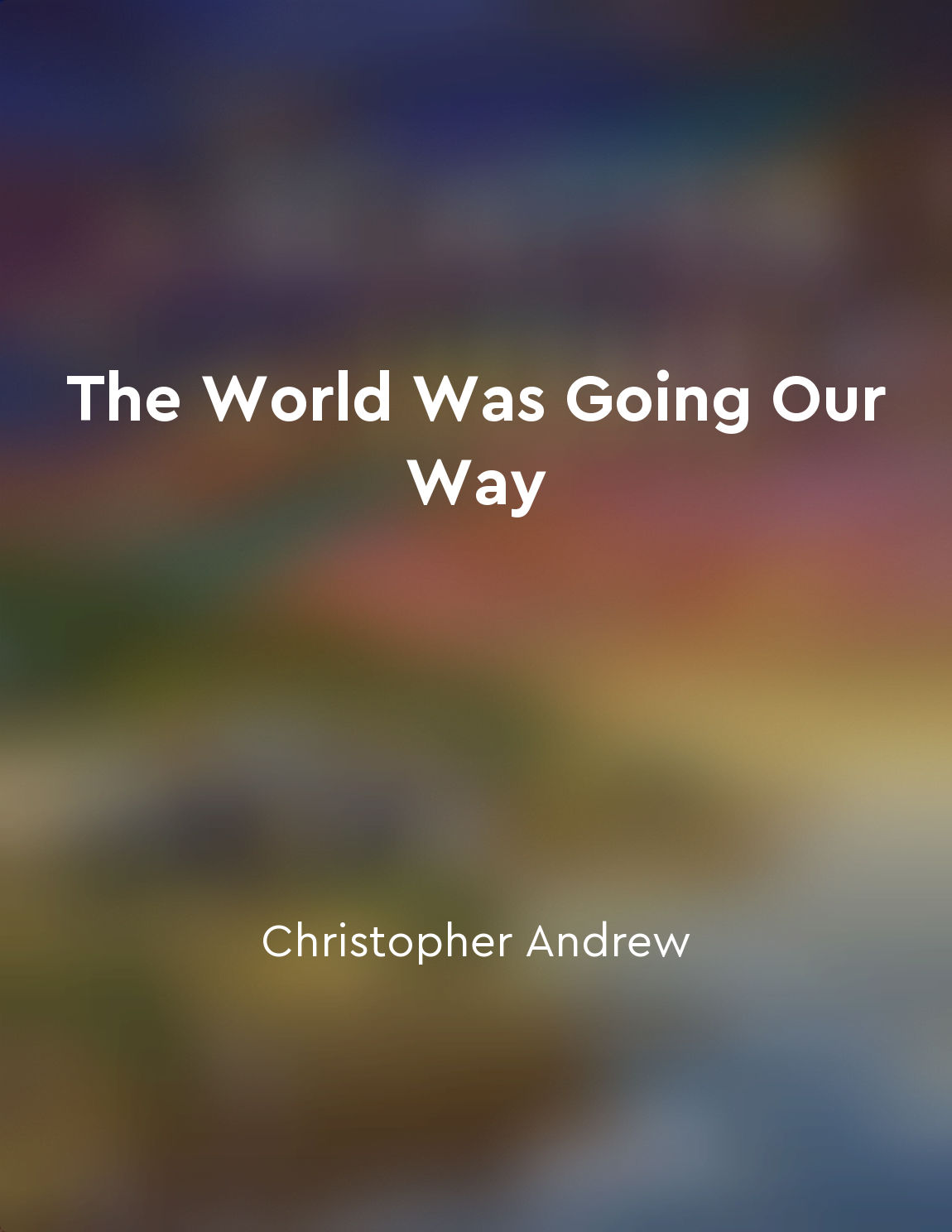end of the Cold War, fall of the Berlin Wall from "summary" of The World Was Going Our Way by Christopher Andrew
The sudden collapse of the Communist government in East Germany and the subsequent opening of the Berlin Wall took the world by surprise. This event marked a significant turning point in the history of the Cold War, signaling the beginning of the end for the Soviet Union and its satellite states in Eastern Europe. The fall of the Berlin Wall symbolized the crumbling of the Iron Curtain that had divided Europe for decades, and paved the way for the reunification of Germany. The end of the Cold War and the fall of the Berlin Wall were the culmination of a series of events that had been building for years. The Soviet Union, under the leadership of Mikhail Gorbachev, had been undergoing significant political and economic reforms in an attempt to revitalize the stagnating Communist system. These reforms, known as perestroika and glasnost, opened up the Soviet Union to greater political and social freedoms, but also weakened the grip of the Communist Party on power. At the same time, popular discontent with the Communist regimes in Eastern Europe was growing. Countries like Poland, Hungary, and Czechoslovakia had already begun to push for greater political reforms, leading to the erosion of Soviet influence in the region. The fall of the Berlin Wall in November 1989 was the most dramatic manifestation of this wave of change, as East Germans flooded into West Berlin to celebrate their newfound freedom. The collapse of the Berlin Wall sent shockwaves throughout the world, as people watched on television screens as jubilant crowds tore down the symbol of division that had separated families and friends for so long. The event was a powerful symbol of the failure of Communism and the triumph of democracy and freedom. It also marked the beginning of a new era in international relations, as the United States emerged as the sole superpower in a world no longer divided by ideological rivalry. In the years that followed the fall of the Berlin Wall, the Soviet Union disintegrated, the Warsaw Pact dissolved, and the Cold War officially came to an end. The events of 1989 marked a victory for democracy and capitalism over Communism, and set the stage for a new world order in which the United States stood unchallenged as the dominant global power. The end of the Cold War and the fall of the Berlin Wall were not just historical events, but seismic shifts that reshaped the geopolitical landscape for decades to come.Similar Posts
National security objectives
National security objectives are the fundamental goals that a nation seeks to achieve in order to safeguard its sovereignty, te...
Warsaw Pact countered NATO's influence
The Warsaw Pact emerged as a direct response to NATO's presence in Europe. Formed in 1955, it consisted of the Soviet Union and...
Espionage played crucial role in Cold War
Espionage, the practice of gathering information secretly, was a critical element of the Cold War. Both the United States and t...

